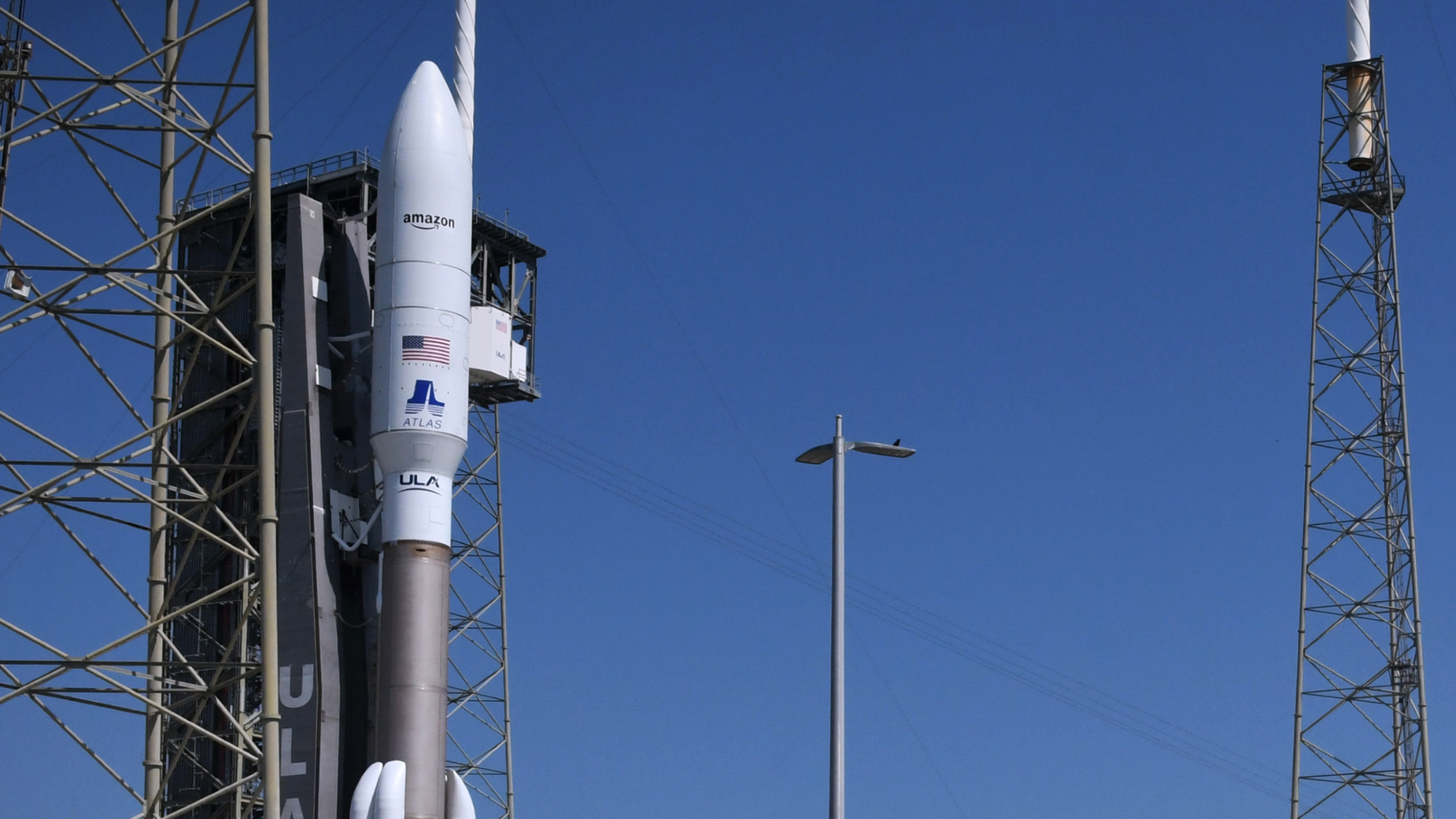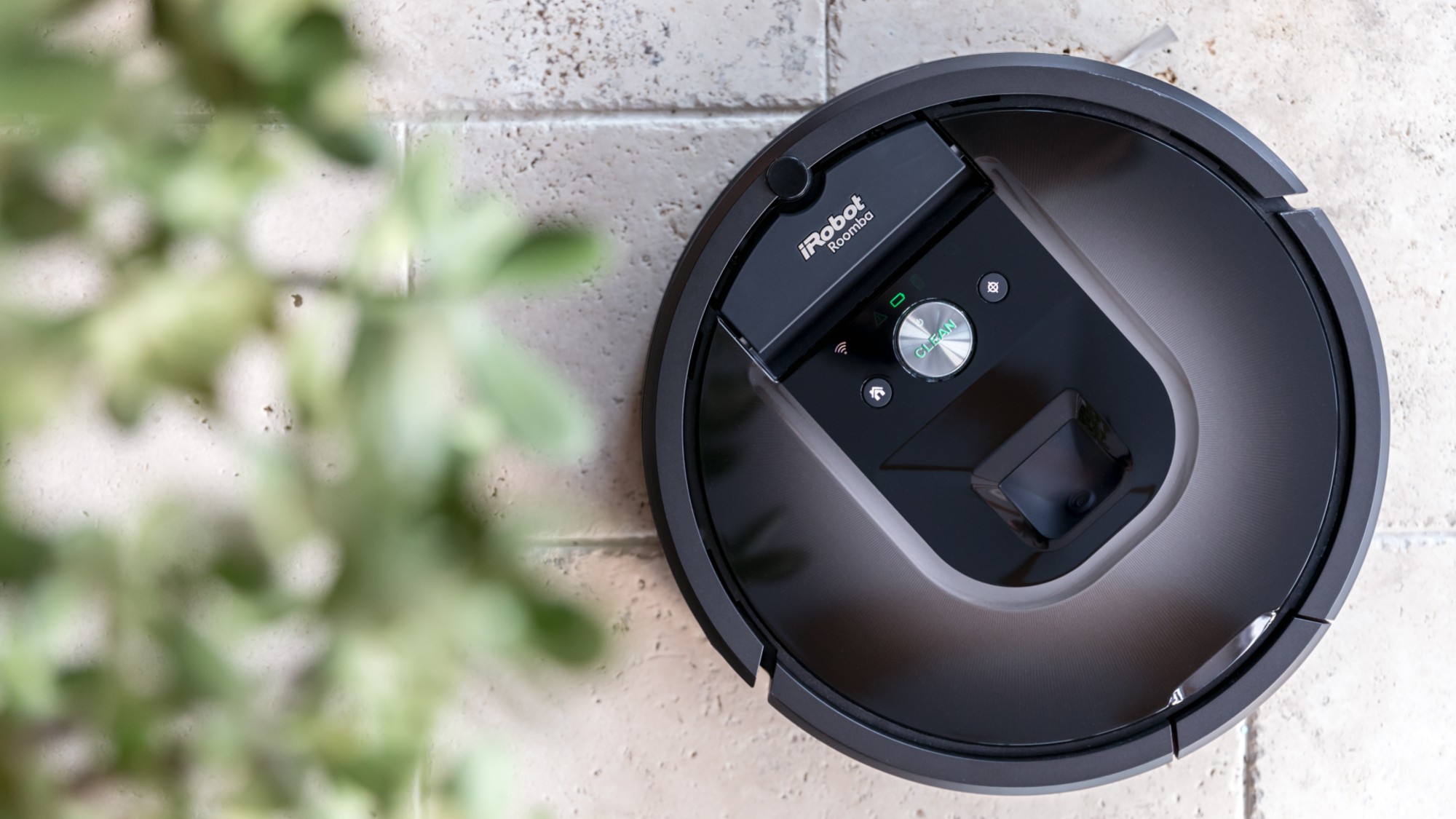Amazon launches 1st Kuiper internet satellites
The battle of the billionaires continues in space


A free daily email with the biggest news stories of the day – and the best features from TheWeek.com
You are now subscribed
Your newsletter sign-up was successful
What happened
Amazon Monday night launched its first 27 Project Kuiper internet satellites into orbit. The company aims to have more than 3,200 of the transmitters orbiting about 400 miles above the planet's surface within a few years, competing with SpaceX's dominant Starlink satellite constellation.
Who said what
Amazon made major upgrades since sending two Kuiper test satellites into orbit in 2023, but "there are some things you can only learn in flight," project vice president Rajeev Badyal said. Although Amazon founder Jeff Bezos also owns a rocket company, Blue Origin, this first batch of satellites was sent into orbit in an Atlas V rocket from the United Launch Alliance.
The "battle of billionaires in space" has reached the satellite internet arena, though Elon Musk's Starlink has a sizable head start with more than 7,000 satellites in orbit and "several million customers around the world," The New York Times said. Still, Kuiper's integration with Amazon Web Services, a cloud computing offering "popular with large corporations and governments" worldwide, could make it "more attractive" to users like weather forecasters who need to run calculations on the large amounts of data it moves over the internet.
The Week
Escape your echo chamber. Get the facts behind the news, plus analysis from multiple perspectives.

Sign up for The Week's Free Newsletters
From our morning news briefing to a weekly Good News Newsletter, get the best of The Week delivered directly to your inbox.
From our morning news briefing to a weekly Good News Newsletter, get the best of The Week delivered directly to your inbox.
What next?
It will take "many hours, if not days," for Amazon to "establish contact with all 27 satellites and know if they are operational," the Times said. The company "already has purchased dozens of rocket launches from United Launch Alliance and Blue Origin" to get its other satellites in orbit, The Associated Press said.
A free daily email with the biggest news stories of the day – and the best features from TheWeek.com
Peter has worked as a news and culture writer and editor at The Week since the site's launch in 2008. He covers politics, world affairs, religion and cultural currents. His journalism career began as a copy editor at a financial newswire and has included editorial positions at The New York Times Magazine, Facts on File, and Oregon State University.
-
 The environmental cost of GLP-1s
The environmental cost of GLP-1sThe explainer Producing the drugs is a dirty process
-
 Greenland’s capital becomes ground zero for the country’s diplomatic straits
Greenland’s capital becomes ground zero for the country’s diplomatic straitsIN THE SPOTLIGHT A flurry of new consular activity in Nuuk shows how important Greenland has become to Europeans’ anxiety about American imperialism
-
 ‘This is something that happens all too often’
‘This is something that happens all too often’Instant Opinion Opinion, comment and editorials of the day
-
 Can Europe regain its digital sovereignty?
Can Europe regain its digital sovereignty?Today’s Big Question EU is trying to reduce reliance on US Big Tech and cloud computing in face of hostile Donald Trump, but lack of comparable alternatives remains a worry
-
 Claude Code: Anthropic’s wildly popular AI coding app
Claude Code: Anthropic’s wildly popular AI coding appThe Explainer Engineers and noncoders alike are helping the app go viral
-
 TikTok finalizes deal creating US version
TikTok finalizes deal creating US versionSpeed Read The deal comes after tense back-and-forth negotiations
-
 Is social media over?
Is social media over?Today’s Big Question We may look back on 2025 as the moment social media jumped the shark
-
 Data centers could soon be orbiting in space
Data centers could soon be orbiting in spaceUnder the radar The AI revolution is going cosmic
-
 What is Roomba’s legacy after iRobot bankruptcy?
What is Roomba’s legacy after iRobot bankruptcy?In the Spotlight Tariffs and cheaper rivals have displaced the innovative robot company
-
 AI griefbots create a computerized afterlife
AI griefbots create a computerized afterlifeUnder the Radar Some say the machines help people mourn; others are skeptical
-
 The robot revolution
The robot revolutionFeature Advances in tech and AI are producing android machine workers. What will that mean for humans?
